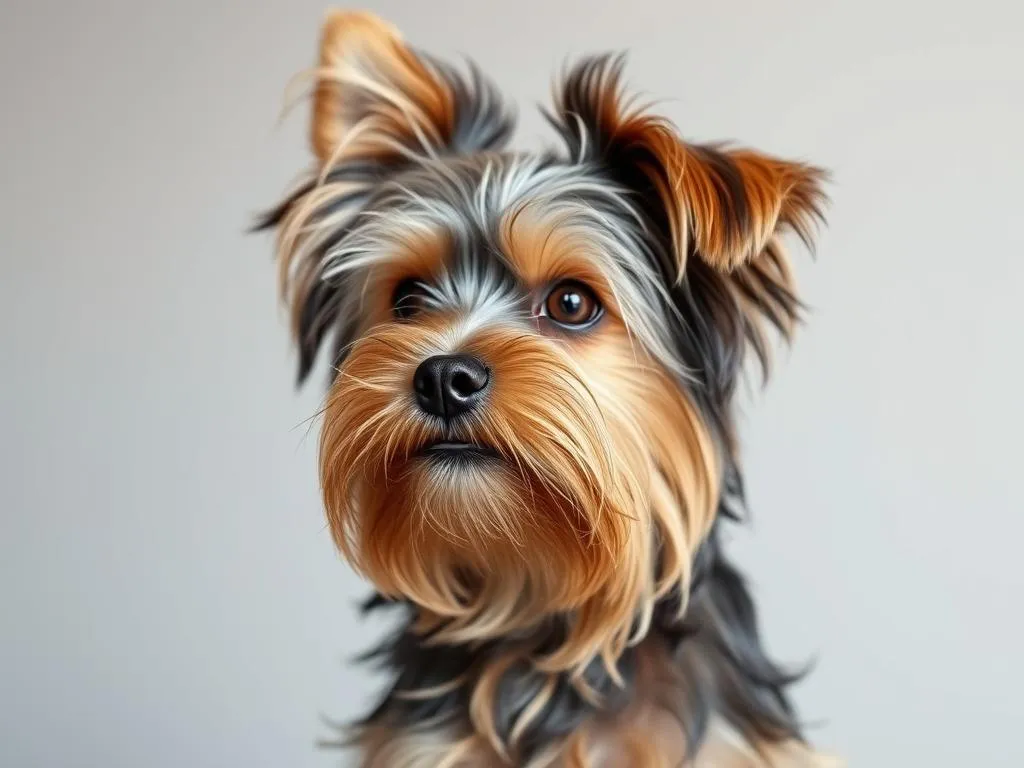
Introduction
Dog breeds are as diverse as the individuals who love them, each characterized by unique traits, temperaments, and appearances. For many potential pet owners, especially those with allergies, understanding which breeds are hypoallergenic is crucial. Hypoallergenic dogs are considered to produce fewer allergens, making them more suitable for allergy sufferers. This article focuses on the Yorkshire Terrier, commonly known as Yorkies, and aims to answer the question: are Yorkies hypoallergenic dogs? We will explore the characteristics of Yorkies, their allergenic potential, and provide insights for potential owners.
Understanding Hypoallergenic Dogs
Definition of Hypoallergenic Dogs
The term “hypoallergenic” refers to dogs that are less likely to trigger allergic reactions in sensitive individuals. While no dog is completely free of allergens, hypoallergenic breeds typically produce fewer allergens, such as dander, saliva, and urine. This leads to the common misconception that hypoallergenic dogs do not cause allergies at all, which is not accurate.
How Allergies to Dogs Work
Dog allergies primarily stem from proteins found in a dog’s skin cells (dander), saliva, and urine. When these proteins are inhaled or come into contact with the skin of an allergic person, they can cause symptoms like sneezing, itching, and respiratory issues. Different dog breeds produce varying amounts of these allergens, influencing how likely someone is to experience an allergic reaction.
Importance of Choosing Hypoallergenic Breeds
Choosing a hypoallergenic dog can significantly benefit allergy sufferers. These breeds can help minimize allergy symptoms and provide companionship without the added stress of constant allergic reactions. Understanding which dog breeds are hypoallergenic is essential for effective allergy management, providing a better quality of life for pet owners and their furry friends.
Overview of Yorkshire Terriers
History and Origin of Yorkies
Yorkshire Terriers originated in England in the 19th century, primarily bred to catch rats in clothing mills. Their small size and tenacious nature made them perfect for this role. Over time, they evolved into beloved companion dogs, known for their affectionate personalities and glamorous coats.
Physical Characteristics of Yorkies
Yorkies are small dogs, typically weighing between 4 to 7 pounds. They stand around 7 to 8 inches tall and are recognized for their long, silky hair, which is often described as resembling human hair. Unlike many other small dog breeds, Yorkies have a distinct coat that does not shed as much, which is a crucial factor in their hypoallergenic status.
Temperament and Behavior Traits
Yorkies are known for their spirited and lively personalities. They are affectionate, intelligent, and often form strong bonds with their owners. Their playful nature can be delightful, but it’s essential to note that their energy might lead to unexpected behaviors, especially in homes with allergy sufferers.
Are Yorkies Hypoallergenic?
Analysis of Yorkies’ Coat Type
The coat of a Yorkie is one of its defining features. It is long, fine, and silky, which differentiates it from the typical fur coats of non-hypoallergenic breeds. Unlike dogs that shed fur regularly, Yorkies have hair that requires grooming but does not fall out as easily. This can contribute to a lower level of allergens in the environment, making them a potential choice for those with allergies.
Allergen Production in Yorkies
Research indicates that Yorkies produce lower levels of dander and saliva compared to many other breeds. While individual reactions can vary, many people with allergies report fewer symptoms when around Yorkies. According to anecdotal evidence, those sensitive to dog allergens may find Yorkies more tolerable than other breeds, although it is essential to conduct personal tests before making a decision.
Personal Experiences and Testimonials
Many Yorkie owners with allergies have shared positive experiences regarding their pets. They often report fewer allergy symptoms and enjoy the companionship of their Yorkies without significant discomfort. However, personal experiences can vary widely, and it’s advisable for prospective owners to spend time with Yorkies before bringing one home.
Caring for Yorkies with Allergies
Grooming Tips
Proper grooming is vital for minimizing allergens in your home. Regular baths and brushing help remove loose hair and dander. Here are some grooming tips for Yorkie owners:
- Regular Baths: Bathe your Yorkie every few weeks with hypoallergenic shampoo to reduce dander.
- Daily Brushing: Brush your Yorkie’s coat daily to prevent matting and remove loose hair.
- Use Appropriate Tools: Invest in high-quality grooming tools like slicker brushes and combs to keep their coat healthy.
Home Environment Management
Creating an allergy-friendly living space is essential for managing allergies. Here are some tips:
- Regular Cleaning: Vacuum frequently and use air purifiers to reduce airborne allergens.
- Designate Pet-Free Zones: Keep certain areas of your home, like bedrooms, off-limits to your Yorkie.
- Use Washable Fabrics: Opt for washable couch covers and curtains to minimize allergen accumulation.
Veterinary Advice and Health Considerations
Regular veterinary check-ups are crucial for maintaining a Yorkie’s health and addressing any allergy-related issues. Consult with a veterinarian if you notice any signs of allergies in your Yorkie or in yourself. They can provide guidance on managing allergies and recommending appropriate treatments if necessary.
Alternative Hypoallergenic Dog Breeds
Overview of Other Hypoallergenic Breeds
If you are considering a hypoallergenic dog but are unsure about Yorkies, several other breeds might suit your needs. Here’s a brief list of some popular hypoallergenic breeds:
- Poodle: Available in Standard, Miniature, and Toy sizes, Poodles have curly coats that trap dander and hair, making them a good option for allergy sufferers.
- Maltese: Known for their long, silky hair, Maltese dogs produce minimal allergens and are affectionate companions.
- Bichon Frise: With their fluffy, curly coats, Bichon Frises are also a popular choice for those with allergies.
Factors to Consider When Choosing a Hypoallergenic Dog
When selecting a hypoallergenic dog, consider the following factors:
- Lifestyle Compatibility: Ensure the breed fits your lifestyle, including activity levels and space requirements.
- Energy Levels: Some breeds require more exercise than others; choose one that matches your energy level.
- Grooming Needs: Be prepared for the grooming requirements of the breed you choose, as hypoallergenic dogs often need regular grooming.
Conclusion
In summary, while are Yorkies hypoallergenic dogs is a nuanced question, many owners and experts believe that Yorkies can be a suitable option for allergy sufferers. Their long, silky hair and lower levels of dander contribute to their hypoallergenic status, making them more tolerable for some individuals with allergies. However, personal experiences may vary, and it’s crucial for potential owners to consider their unique circumstances and conduct thorough research.
If you’re an allergy sufferer contemplating a Yorkie, take the time to interact with one to gauge your reaction. With proper care and attention, a Yorkie can be a loving and enjoyable addition to your family, providing companionship without overwhelming allergy symptoms.








